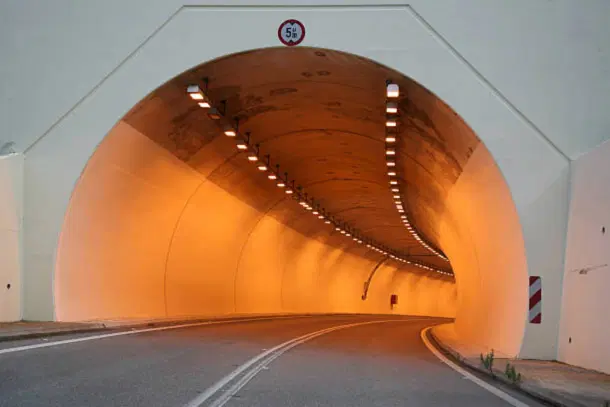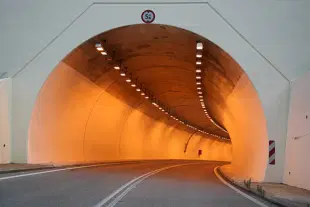Infrastructure
India’s Rs 1 Lakh Crore Tunnel Plan: Better Connectivity Aside, It Can Show The Way For Future Infrastructure Projects
V Bhagya Subhashini
Sep 05, 2024, 12:19 PM | Updated Sep 06, 2024, 05:44 PM IST
Save & read from anywhere!
Bookmark stories for easy access on any device or the Swarajya app.


The Ministry of Road Transport and Highways (MoRTH) has an ambitious plan to transform India’s infrastructure by constructing 74 new tunnels across the country, spanning a total of 273 kilometres (km).
Announced by Road Transport Minister Nitin Gadkari, this initiative aims to boost connectivity and enhance highway infrastructure, particularly in challenging terrains like the Himalayas. The estimated cost for the project is around Rs 1 lakh crore.
The tunnel-building is well underway. Of the planned tunnels, 35 have been completed, covering 49 km, at a cost of Rs 15,000 crore. Another 69 tunnels, totalling 134 km, are currently under construction, with an estimated budget of Rs 40,000 crore, reports the Economic Times.
Although these figures reflect the government's significant financial commitment to upgrading the nation’s roadways, the project’s sheer scale raises critical questions about execution, cost efficiency, and the complexities of working in diverse terrains.
One of the key challenges facing the tunnel construction initiative is India’s varied and often difficult landscape.
Minister Gadkari, during his recent address at the second Tunnelling India conference hosted by the Federation of Indian Chamber of Commerce and Industry (FICCI), underscored the need for technological innovation and cost-effective solutions.
With India’s infrastructure needs stretching from coastal areas to the rugged Himalayan region, traditional approaches may not suffice. Gadkari highlighted the importance of using advanced technologies like "precast technology and push-back techniques" to mitigate issues such as landslides, which are common in mountainous regions.
A major takeaway from Gadkari's speech is his strong endorsement of performance audits over financial audits for large infrastructure projects. In his words, "performance audit is more important than financial audit." This highlights a growing realisation within the government that on-time delivery and quality of work are equally, if not more, important as balancing the books.
Performance audits, according to Gadkari, would ensure that projects are not only completed within their financial parameters but also meet technical and operational standards. This shift is significant, as India has frequently faced delays and cost overruns in infrastructure projects due to inefficient execution and mismanagement.
One of the most pointed critiques Gadkari offered was aimed at the quality of detailed project reports (DPRs). He emphasised that poor DPRs are a recurring issue in India, often leading to improper execution and inflated costs in projects.
DPR consultants, according to the minister, frequently fail to adhere to the necessary procedures, compromising the quality of roads, highways, and tunnels. This problem could seriously hamper the success of the new tunnel projects, especially if left unattended.
The minister's call for a thorough evaluation of projects from the DPR phase through to execution highlights the need for stringent oversight and higher standards in the planning phase. This not only applies to tunnels but is a broader issue that affects India’s overall infrastructure development. Better DPRs would mean fewer delays, fewer cost overruns, and a higher quality of construction.
While the financial and logistical challenges are significant, Gadkari’s focus on accountability and technological adaptation offers a roadmap for overcoming them. If managed properly, this project could set new standards for infrastructure development in India, ensuring that future projects are delivered on time, within budget, and to the highest standards.
V Bhagya Subhashini is a staff writer at Swarajya. She tracks infrastructure developments.





